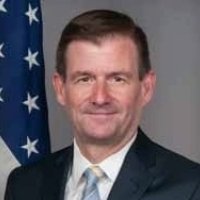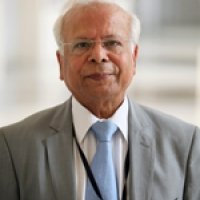Looking Back, Looking Forward: Assessing the US-Pakistan Relationship
Submit a question
Nearly three years after the US withdrawal from Afghanistan, the US-Pakistan relationship remains in a state of uncertainty. The relationship is largely crisis-free, but still in search of new spaces for cooperation. It’s also struggling to find its place in a world consumed by intensifying great power competition, conflict in Ukraine and Gaza, and growing instability in the Middle East. Still, despite all this, the relationship has seen increased engagement of late in areas ranging from climate change to counterterrorism.
This half-day conference took stock of US-Pakistan relations, drawing on the views of senior officials, a group of former US ambassadors to Pakistan, journalists, scholars, business leaders, and Pakistan diaspora figures. It reflected on how past experiences can help guide US policymakers working on the relationship today, and examined prospects for future cooperation—and how to get there.
This conference was organized by the Wilson Center’s South Asia Institute in partnership with International Academy of Letters USA, a nonprofit organization that aims to promote cooperation through dialogue, the arts, and diplomacy.
Keynote Speakers

Moderators


Panelists

Former Under Secretary of State for Political Affairs; Former Ambassador to Pakistan, Lebanon, and Jordan
Freelance Writer, and Former Pakistan and Afghanistan Bureau Chief, The Washington Post

Former Governor of Pakistan's Central Bank, and Former Adviser to the Pakistani Prime Minister

Hosted By

Indo-Pacific Program
The Indo-Pacific Program promotes policy debate and intellectual discussions on US interests in the Asia-Pacific as well as political, economic, security, and social issues relating to the world’s most populous and economically dynamic region. Read more


Environmental Change and Security Program
The Environmental Change and Security Program (ECSP) explores the connections between environmental change, health, and population dynamics and their links to conflict, human insecurity, and foreign policy. Read more


Kissinger Institute on China and the United States
The Kissinger Institute works to ensure that China policy serves American long-term interests and is founded in understanding of historical and cultural factors in bilateral relations and in accurate assessment of the aspirations of China’s government and people. Read more
